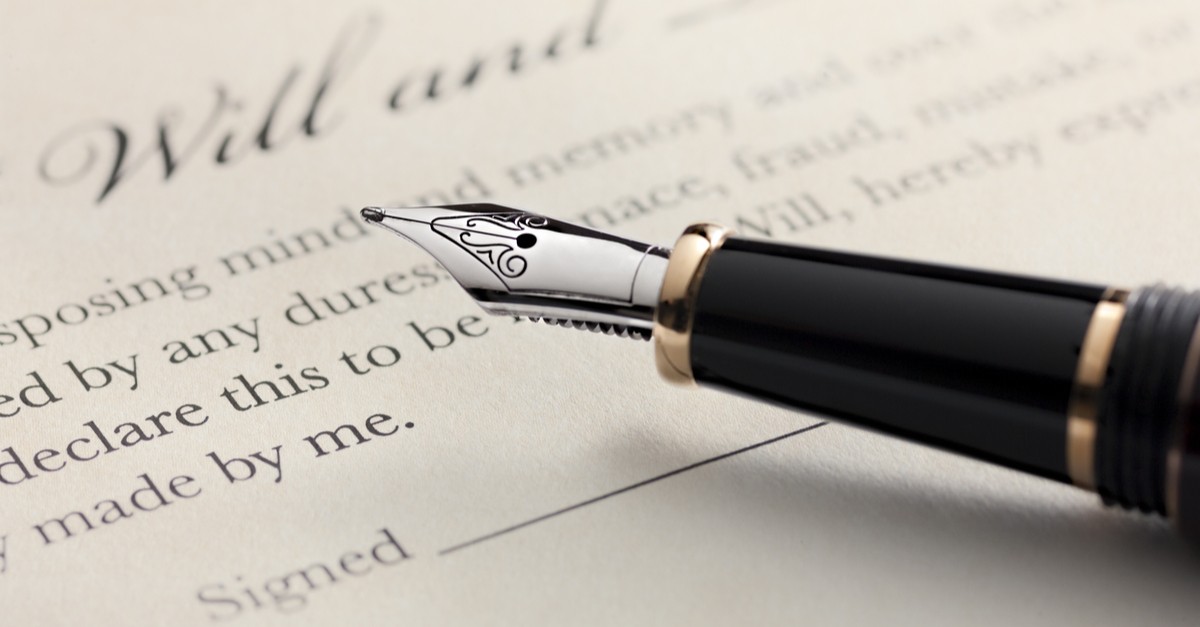
If you add up the value of everything you own and subtract the value of everything you owe, that’s called your net worth. When you die, it’s called your estate. While you’re still alive, you have the opportunity to designate how to divide your estate among your family and friends when you die by creating a will. Your will specifies what you want to happen with your assets after you die. It also names a person to be executor of your will. The executor accepts responsibility for making sure everyone complies with your wishes and completes the administrative paperwork to wrap up your financial affairs. Even though it’s your estate, however, there are limits to what you can stipulate in a will, especially if you’re married.
People often store a will in a safe place, such as a safe deposit box at a bank. Others might want to keep the contents a secret and hide their will in a secret spot or rely on their attorney to be the safe keeper of the document. While it’s possible to include instructions in your will for how you want to dispose of your body or what kind of funeral or memorial service you want, your funeral might be over by the time anyone retrieves a copy of your will. Since you don’t want these final wishes to be secret, don’t include them in your will. Instead, create a separate document and provide it to the executor of your will. You’ll have a better chance that your instructions will be followed and you can keep the other contents of your will a secret.
In one episode of a daytime soap opera, a wealthy person dies and the potential heirs attend the reading of the will to find out what they have inherited. The deceased leaves the bulk of his fortune to his only son, who is gay. The will, however, stipulates that the son must marry a woman before he turns 25 or the entire inheritance goes to his evil cousin. Another wealthy widow, who despises her son-in-law, leaves the bulk of her estate to her only daughter, but only if the daughter divorces her husband. In another episode, a wealthy, devout Catholic leaves her fortune to her nephew if he converts to Catholicism. If he chooses not to convert, her fortune goes to the Catholic Church.
While these episodes provide dramatic entertainment, they won’t ever happen in real life. Contrary to popular belief, you can’t put certain restrictions on gifts you make in your will. In particular, you cannot make a gift that’s contingent on marriage, divorce, or changing religions. You can leave a gift and express your wishes for how the recipient uses that gift, such as paying for college, but it’s up to your executor to determine if and how your wishes might be enforced.
You might have heard stories of an eccentric millionaire that left his entire estate to his cat or dog. If that’s true, it means the eccentric millionaire didn’t have a very good lawyer. Pets can’t own property, so you can’t leave property in your will to a pet. However, you can make arrangements before you die for someone you trust to care for your pet after your death. In your will, you can make gifts to your pet’s designated caretaker rather than directly to your pet.
Some monetary assets, such as the proceeds from a life insurance policy or the balance in a 401(k)-retirement savings account, might already have one or more designated beneficiaries who inherit the money when you die. You cannot override these beneficiary designations in your will and redirect the money to someone else, unless you’re naming an alternate if the named beneficiary dies and the money goes to your estate. When you create or update your will, make sure you also update separate beneficiary designations for these types of assets.
If you are married, the laws that determine your surviving spouse’s rights to your assets are different in each state. However, most states prevent you from disinheriting your spouse. Unless you have a legal document in which your spouse waives all rights to any part of your estate, your spouse will likely be entitled to at least one-third to one-half of your estate, regardless of the instructions you put in your will.
It only seems fair that you decide what happens with your assets after you die. If you die without a will, a judge, who probably doesn’t know you, will decide how to divide your estate. Even if you’re not wealthy and you only have a few possessions you want specific people or organizations to inherit, you should create a will. You can attach conditions to some of the gifts you make, as long as those conditions don’t violate the law. While there’s no guarantee that anyone will enforce the conditions, you won’t know because you’ll be dead.

